Bremelanotide
- CAS NO.:189691-06-3
- Empirical Formula: C50H68N14O10
- Molecular Weight: 1025.18
- MDL number: MFCD09954110
- EINECS: 211-519-9
- SAFETY DATA SHEET (SDS)
- Update Date: 2024-12-09 18:18:39
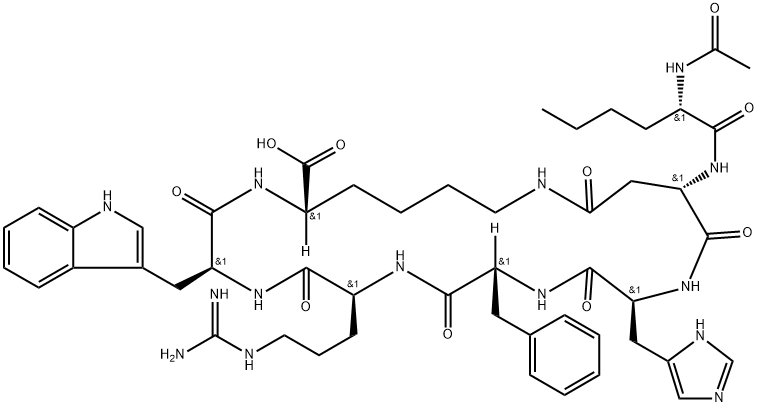
What is Bremelanotide?
Description
Bremelanotide (Vyleesi®) was approved by the FDA in June 2019 for the treatment of acquired, generalized HSDD in premenopausal women. Bremelanotide activates melanocortin receptors,but the mechanism by which it improves sexual desire is unknown. To use bremelanotide, women inject it under the skin ofthe abdomen or thigh at least 45 minutes before anticipated sexual activity.The optimal time to inject bremelanotide may vary based on the duration of benefit and side effects experienced. More than one dose of bremelanotide should not be used within 24 hours or more than eight doses per month. Common side effects include nausea, vomiting, flushing, injection site reactions, and headache. Bremelanotide should not be used in women with high blood pressure that is uncontrolled or in those with known cardiovascular disease, and it is not recommended for women at high risk for cardiovascular disease. The safety and efficacy of bremelanotide has not been studied in breast cancer survivors, and there are no recommendations regarding its use in this population.
The Uses of Bremelanotide
Treatment of sexual dysfunction (melanocortin receptor agonist).
Bremelanotide is used to treat low sexual desire in women who have not gone through menopause and have not had low sexual desire in the past.
bremelanotide should be used only to treat low sexual desire that occurs with any type of sexual activity, in any sexual situation, or with any sexual partner.
Bremelanotide should not be used to treat low sexual desire that is caused by relationship problems, health problems, mental illness, or by using certain drugs or medications.
https://www.drugs.com
Definition
ChEBI: Bremelanotide is an oligopeptide.
Biological Activity
Bremelanotide (PT-141) is a brain-penetrant, alpha-melanocyte-stimulating hormone (α-MSH)-derived cyclic heptapeptide agonist toward melanocortin receptors, including MC1R, MC3R and MC4R (affinty = 10 nM by competitive binding against 0.2 nM NDP-α-MSH using human MC4R-expressing HEK-293). Bremelanotide induces cAMP accumulation in hMC4R-expressing HEK-293 cells and exhibits in vivo sexual arousal efficacy among both male (50 μg/kg intranasally or 50-500 pg/kg via lateral ventricle injection) and female rats (100-200 μg/kg sc or 800 μg/kg via lateral ventricle injection) by activating neurons in brain regions responsible for sexual function.
Mechanism of action
The trade name is vylessi. It likely works in the brain, but the true mechanism of action is unknown.Bremelanotide is given by injection at least forty-five minutes prior to anticipated sex and alcohol must be avoided for two hours before and two hours after using the medication.
Bremelanotide is a nonselective melanocortin receptor agonist; at therapeutic doses, bremelanotide binding to melanocortin 1 and 4 receptors is mostrelevant.
Sexual dysfunction is theoretically linked to an imbalance in central excitatory and inhibitory sexual signals.
HSDD hypothetically results from excessive inhibitory signals, inadequate excitatory signals, or a combination of the two.
Melanocortin receptors are located in the medial preoptic area of the hypothalamus, which is implicated in the sexual behavior of both sexes; stimulation of those receptors leads to dopamine release.
Prescriber's Guide Stahl's Essential Psychopharmacology
Clinical Use
bremelanotide, or PT-141, is a synthetic, central melanocortin receptor agonist that increases αmelanocyte stimulating hormone (α-MSH) in the body. It has been reported to aid in sexual experiences for men and women.PT-141 is a deaminated derivative and likely metabolite of Melanotan II, another synthetic melanocortin receptor agonist initially used for tanning purposes. During treatment with Melanotan II, researchers, clinicians and patients noticed an increase in sexual activity.However, Side effects reported with melanotan II include nausea, vomiting, yawning, and a delayed onset of erection (approximately 2 hours).So researchers began to look for alternatives to melanotan II, and bremelanotide was synthesized in 2000 and trials began.
Unlike the FDA approved PDE5 inhibitors that improved sexual function by improving nitric oxide and vascular function, PT-141 works on the CNS, thus eliciting a more desirous sexual response.Of the 5 meanocortin receptors (1-5), PT-141 has the highest affinity for melanocortin receptor 4 (MC4R). In the hypothalamus, α-MSH suppresses appetite (MC4R receptor), with MC4R defects are reported to be a cause for autosomal dominant obesity, accounting for approximately 6% of all cases of early onset obesity.MC4R stimulation also contributes to improved sexual function in both men (improving penile erections) and women (increasing desire and arousal).
https://northamptonintegrativemedicine.com
Side Effects
The U.S. Food and Drug Administration today approved Vyleesi (bremelanotide) to treat acquired, generalized hypoactive sexual desire disorder (HSDD) in premenopausal women.
The most common side effects of Vyleesi are nausea and vomiting, flushing, injection site reactions and headache. About 40% of patients in the clinical trials experienced nausea, most commonly with the first Vyleesi injection, and 13% needed medications for the treatment of nausea. About 1% of patients treated with Vyleesi in the clinical trials reported darkening of the gums and parts of the skin, including the face and breasts, which did not go away in about half the patients after stopping treatment. Patients with dark skin were more likely to develop this side effect.
https://www.fda.gov
Current market and forecast
Uptake of Vyleesi (bremelanotide), a drug produced by Amag Pharmaceuticals to treat women with HSDD, is expected to be slow, if approved, but is unlikely to encounter the same challenges as Sprout's Addyi, an already approved similar drug.
Bremelanotide (marketed as Vyleesi) — an injectable drug approved in June for premenopausal women with generalized hypoactive sexual desire disorder — will carry a list price of $899, Reuters reports.
Properties of Bremelanotide
| Density | 1.43 |
| solubility | DMSO (Slightly), Methanol (Slightly), Water (Slightly, Sonicated) |
| form | Solid |
| pka | 3.37±0.70(Predicted) |
| color | White to Off-White |
| Stability: | Un-reconstituted lyophilized powder should be stored under refrigeration per vial’s instruction. After reconstitution with bacteriostatic water, refrigerate solution and use within 30 days. If buffered solution is used, stability will improve. |
Safety information for Bremelanotide
Computed Descriptors for Bremelanotide
| InChIKey | FFHBJDQSGDNCIV-MLYCVURTNA-N |
New Products
Tert-butyl bis(2-chloroethyl)carbamate 4-Methylphenylacetic acid N-Boc-D-alaninol N-BOC-D/L-ALANINOL 3-Morpholino-1-(4-nitrophenyl)-5,6-dihydropyridin- 2(1H)-one Furan-2,5-Dicarboxylic Acid Tropic acid DIETHYL AMINOMALONATE HYDROCHLORIDE 1,1’-CARBONYLDIIMIDAZOLE R-2-BENZYLOXY PROPIONIC ACID 1,1’-CARBONYLDI (1,2-4 TRIAZOLE) N-METHYL INDAZOLE-3-CARBOXYLIC ACID (2-Hydroxyphenyl)acetonitrile 4-Bromopyrazole 5-BROMO-2CYANO PYRIDINE 5,6-Dimethoxyindanone 5-broMo-2-chloro-N-cyclopentylpyriMidin-4-aMine 2-(Cyanocyclohexyl)acetic acid 4-methoxy-3,5-dinitropyridine 2-aminopropyl benzoate hydrochloride 1-(4-(aminomethyl)benzyl)urea hydrochloride diethyl 2-(2-((tertbutoxycarbonyl)amino) ethyl)malonate tert-butyl 4- (ureidomethyl)benzylcarbamate Ethyl-2-chloro((4-methoxyphenyl)hydrazono)acetateRelated products of tetrahydrofuran
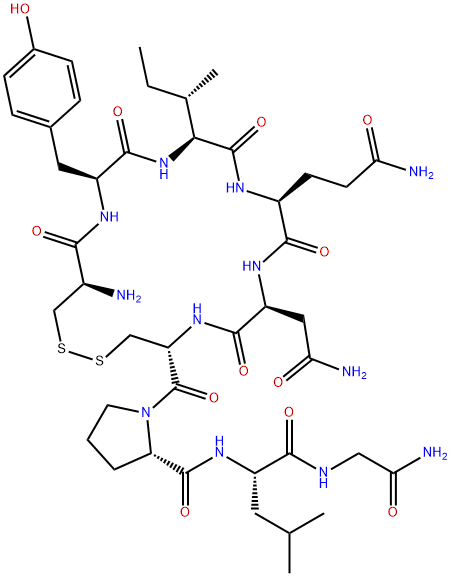
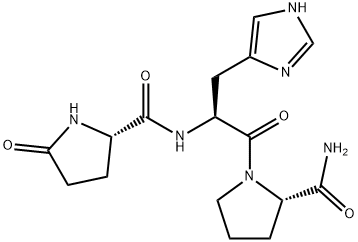

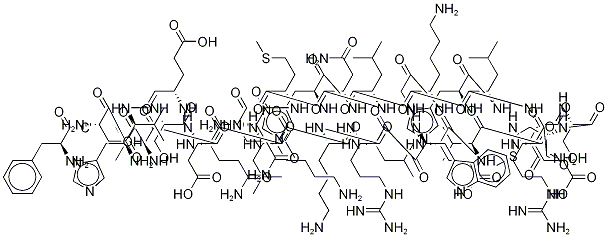
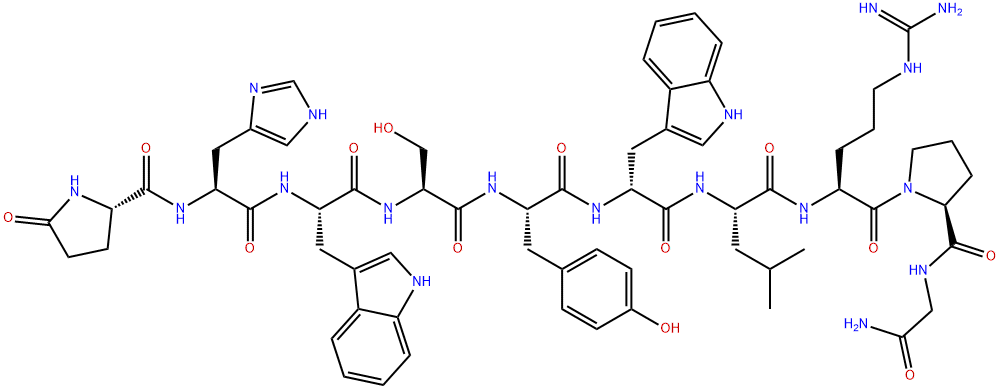
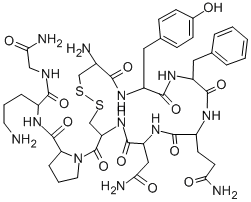

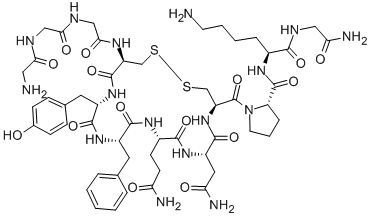
You may like
-
 2033-24-1 98%View Details
2033-24-1 98%View Details
2033-24-1 -
 1975-50-4 98%View Details
1975-50-4 98%View Details
1975-50-4 -
 2-HYDROXY BENZYL ALCOHOL 98%View Details
2-HYDROXY BENZYL ALCOHOL 98%View Details
90-01-7 -
 2-Chloro-1,3-Bis(Dimethylamino)Trimethinium Hexafluorophosphate 221615-75-4 98%View Details
2-Chloro-1,3-Bis(Dimethylamino)Trimethinium Hexafluorophosphate 221615-75-4 98%View Details
221615-75-4 -
 61397-56-6 CIS BROMO BENZOATE 98%View Details
61397-56-6 CIS BROMO BENZOATE 98%View Details
61397-56-6 -
 14714-50-2 (2-Hydroxyphenyl)acetonitrile 98+View Details
14714-50-2 (2-Hydroxyphenyl)acetonitrile 98+View Details
14714-50-2 -
 118753-70-1 98+View Details
118753-70-1 98+View Details
118753-70-1 -
 733039-20-8 5-broMo-2-chloro-N-cyclopentylpyriMidin-4-aMine 98+View Details
733039-20-8 5-broMo-2-chloro-N-cyclopentylpyriMidin-4-aMine 98+View Details
733039-20-8